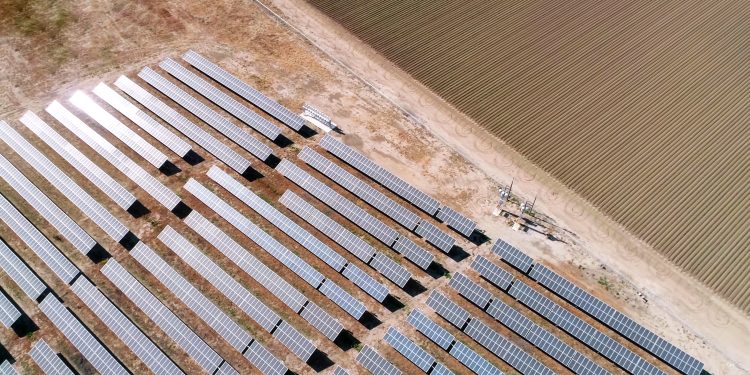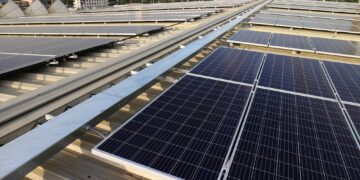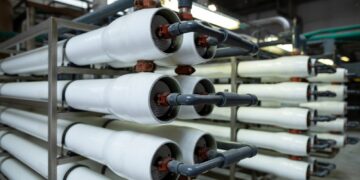As part of its ambitious Vision 2030, Saudi Arabia is advancing towards a future with at least 50 percent of its electricity generated from renewable sources by 2030. This is part of a broader strategy to reduce carbon emissions and drive sustainable development.
The Mishkat Interactive Center for Atomic and Renewable Energy, established in Riyadh in 2017 by the King Abdullah City for Atomic and Renewable Energy, serves to educate the public about renewable energy technologies and further the objectives of Vision 2030.
“The National Renewable Energy Program, with all its achieved and under-construction projects, really reflects how promising this strategic initiative is to fulfill Vision 2030,” said Reham Aldous, the center’s content and program development manager.
Wind
The northern and coastal territories of Saudi Arabia present a vast potential for wind energy. The nation has set an ambitious target to achieve 50 gigawatts of wind energy capacity by the year 2030.
In 2021, the Dumat Al-Jandal project, a 400-megawatt wind farm and the largest in the Middle East, commenced operations. There are further large-scale wind energy projects in development.
Solar
With its high solar irradiance, Saudi Arabia is poised to harness solar energy, aiming to install 50 GW of solar capacity by 2030.
Significant projects include the 300-MW Sakaka solar plant, the 420-MW Sudair solar park, and the upcoming 2-GW Al-Shuaibah solar project. The nation is also investigating pioneering concepts such as floating solar farms.
The Sakaka Solar Power Plant, which began operations in 2021, is composed of over 1.2 million solar panels and generates energy at a cost of merely $0.023 per kWh using photovoltaic technology.
Another solar technology involves thermal solar energy, where mirrors concentrate sunlight to produce high temperatures for electricity generation.
Hydro
While Saudi Arabia has limited hydroelectric potential due to scarce moving bodies of water, it does operate some small-scale hydroelectric facilities, such as the Baisha Dam, and is exploring the feasibility of pumped storage hydropower projects.
Geothermal
Exploration has begun in Saudi Arabia’s volcanic regions to assess the potential for geothermal energy, with pilot projects indicating a promising capacity of up to 3 GW.
Bio
The nation is progressing in bioenergy, focusing on biofuels with a goal to produce substantial quantities of bioethanol and biodiesel by 2030. Additionally, waste-to-energy initiatives are under consideration.
Wind, biofuels, geothermal, and thermal solar energy all utilize the kinetic energy from natural resources to generate electricity, mainly through turning turbines.
The Ministry of Energy in Saudi Arabia has been a cornerstone in leading the country’s transition to renewable energy, setting targets, initiating competitive project bids, and forging partnerships to cultivate a formidable renewable energy sector.
Strategic policies, dedicated investment, and collaborative ventures have been fundamental in establishing Saudi Arabia as a frontrunner in sustainable energy within the region.
“The Kingdom is characterized by an abundance of renewable energy resources,” noted Aldous, emphasizing the vast potential of solar and wind resources in the country.









